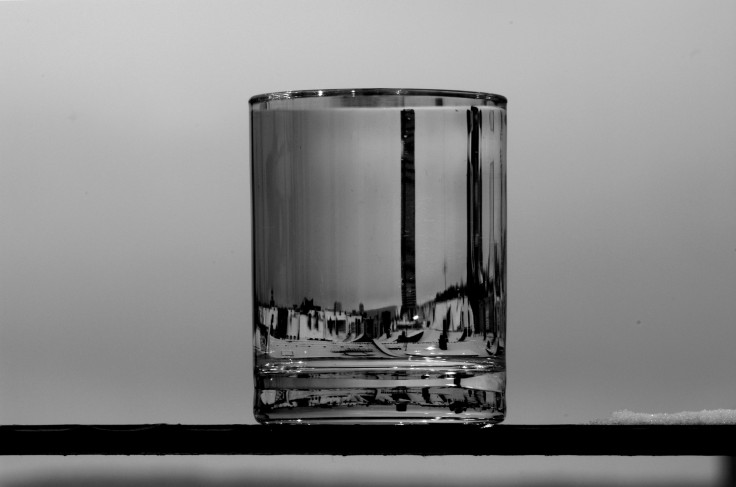How Much Water Should You Drink? Scientists Say 8 Cups A Day Is Not Necessary

Although long since debunked, the idea that people should consume a specific amount of water per day — eight glasses, or two liters — continues to hold sway.
For years, proponents of the “water cure” and other aqua enthusiasts have sold the American public on the magical panacea of life’s most abundant and natural resources--water. Television spots selling isotonic elixirs saturate the electronic domain, promising greater athletic performance and general health for a modest price available at any gas station or supermarket. A man who’s not a doctor — but plays one on TV — presides over a man pedaling furiously on an exercise bike, electrodes taped to his temples.
Even slight losses of hydration, they say, may lead to decreased performance, mentally and physically. The Coca-Cola Beverage Institute for Health & Wellness, for example, recommends 16 cups, or 3.7 liters, of "total water" — which includes drinking water and other beverages — for men, and 11.5 cups of total water for women. Aside from Coke and sports drinks, the world's leading beverage maker also sells Dasani, a bottled water product that company officials acknowledged in February is comprised of tap water and additives. In its marketing copy, the company's "Beverage Institute" cites a report from the prestigious Institute of Medicine, part of the U.S. National Academy of Sciences, noting the "scientific panel" refrains from offering specific guidelines on water consumption, given that "total water" may come partially from consumption of food.
Yet, researchers in Australia last month added some more clarity to the growing body of evidence debunking the notion that humans — evolved on the African savannah to chase large game long distances — would be so sensitive to fluctuations in body hydration. Currently accepted hydration guidelines are not supported by good scientific evidence, concluded lead investigator Paul Laursen, an academic from New Zealand.
Laursen and his colleagues tested 10 cyclists performing a 25-kilometer time trial while “blinded” to their levels of hydration. In the experiment, the athletes were dehydrated by three percent by walking or cycling for two hours in “ecologically correct” conditions, beneath the hot Australian desert sun. They then performed a 25-kilometer time trial while connected intravenously to a tube that a tube that delivered three options: full hydration, two percent hydration, or no hydration. Their baseline levels of nutrition were maintained by delivering a volume of saline solution based on measured output of sweat.
Unlike previous experiments, researchers here tested whether a psychological component might disguise purported benefits of hydration on athletic performance. As expected, the athletes experienced no difference in performance based on levels of hydration, supporting a “drink to thirst” movement hoping to prevent hyponatraemia in athletes, a potentially fatal condition caused by diluted sodium levels from overhydration.
Yet, researchers say the casual athlete, hitting the gym or bike trail on the weekend, need not worry excessively about either hydration or dehydration. The body, it seems, has evolved a remarkably efficient system for ridding itself of excess water — urination. And when the body requires more water, there is the feeling of thirst.
Source: Laursen P, Wall, BA, Watson G, et al. Current Hydration Guidelines Are Erroneous: Dehydration Does Not Impair Exercise Performance In The Heat. British Journal Of Sports Medicine. 2013.



























